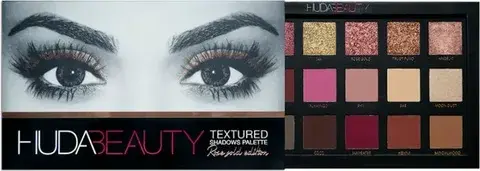The beauty world is no stranger to controversy, and when it comes to high-profile brands, few have sparked as much debate as Huda Beauty. In recent years, conversations have intensified, with people asking: Is Huda Beauty racist? It’s a question worth diving into, as the answers aren’t just black and white. For some, the brand has made strides in promoting diversity, but for others, it’s fallen short and crossed boundaries.
Let’s peel back the layers to understand where these accusations come from, why they matter, and what the broader beauty community can learn from them.
The Backstory: How Did This All Begin?
Huda Beauty, founded by makeup artist and influencer Huda Kattan, became a sensation practically overnight. From viral makeup tutorials to a growing line of products, it wasn’t long before Huda Beauty was a staple in makeup bags everywhere.
But as the brand rose, so did criticism. There were repeated instances where followers called out questionable actions and messages that many found insensitive, exclusionary, or culturally tone-deaf.
The accusations of racism against Huda Beauty aren’t about one singular incident. Instead, it’s a pattern, and people are calling for accountability.
Unpacking the Allegations: What Did Huda Beauty Do?
When people label Huda Beauty racist, what are they really talking about? There are a few specific incidents and themes worth noting:
- Appropriation of Darker Skin Tones
- One of the main accusations against Huda Beauty is that the brand has leveraged darker skin tones and cultural symbols for profit without genuinely supporting those communities.
- Critics argue that while Huda Beauty is Middle Eastern-owned and caters to diverse skin tones, their approach to representation hasn’t always been as inclusive as their products’ shades suggest.
- Insensitive Marketing Campaigns
- Marketing mishaps aren’t uncommon in beauty, but Huda Beauty’s campaigns have sometimes crossed the line. There was backlash for allegedly photoshopping darker skin tones onto models, which many saw as offensive and an act of cultural appropriation.
- Instead of featuring models with dark skin, they used photo editing to create what they called “diverse” imagery. This came across as insincere and performative rather than authentically inclusive.
- Insensitive Comments and Cultural Missteps
- Huda Kattan herself has faced criticism for making what some saw as insensitive comments or for staying silent on issues like Black Lives Matter. In a time when silence speaks volumes, people expect major brands to take a stand.
- Competitors Doing It Better?
- When you look at brands like Fenty Beauty, which was launched with a clear dedication to inclusion, the difference is stark. Consumers are holding up Huda Beauty to these new standards and seeing a brand that, in their view, falls short.
Why These Allegations Matter in Today’s Beauty Industry
The beauty industry is evolving. Today, consumers want brands that “get it.” They don’t just want a shade of foundation that fits their skin tone; they want to feel respected and understood.
So, when accusations of racism or cultural insensitivity hit a brand, it’s not taken lightly. Huda Beauty is caught in this shift, where inclusivity isn’t just a nice-to-have – it’s expected. And when consumers feel that expectation isn’t met, the backlash can be fierce.
What Huda Beauty Could Do Differently
The criticisms aren’t necessarily a death sentence. Some brands have transformed after facing similar accusations. Here are some concrete steps Huda Beauty could consider to mend its image and meet consumer expectations:
- Collaborate with Underrepresented Voices
- The easiest way to show you care? Work with people directly from the communities you’re trying to serve. It’s a clear way to demonstrate respect and inclusion.
- Make Their Team as Diverse as Their Shade Range
- A diverse team naturally brings a range of perspectives that can help catch potential cultural missteps early on.
- Be Transparent and Open About Past Missteps
- Own up to mistakes. Brands like Huda Beauty, with a massive platform, can use this power to set an example by being transparent about how they plan to improve.
- Listen to Feedback
- Consumers are more vocal than ever. Huda Beauty can turn these criticisms into growth opportunities by genuinely listening to what people are asking for.
Addressing the Question: Is Huda Beauty Racist?
So, is Huda Beauty racist? This is where things get complex. Racism isn’t just about explicit actions; it can manifest subtly in business practices, marketing, and messaging.
Here’s the reality: Some people view Huda Beauty’s actions as insensitive and opportunistic, especially in how they’ve engaged with issues of skin tone and cultural identity. Others believe the brand has potential but needs to take action to show they’re committed to genuine inclusivity.
The fact remains that Huda Beauty’s reputation in this area is rocky, and it will require real, tangible efforts to restore consumer trust.
Lessons for the Beauty Industry
What can other brands learn from Huda Beauty’s controversies?
- Inclusion Goes Beyond Product Shades
- Diversity in beauty is a full-package deal. It involves marketing, hiring practices, customer service, and brand culture.
- Avoid Performative Activism
- Posting about diversity while failing to truly embody it comes across as insincere. Consumers see through surface-level gestures. Brands need to back up their words with action.
- Embrace Feedback as a Growth Tool
- The internet is fast to call out mistakes, but this can be an opportunity. Listening, acknowledging, and growing can turn a PR disaster into a story of transformation.
FAQs
1. Has Huda Beauty apologized for any of these accusations?
Yes and no. Huda Beauty has made statements addressing criticism, though some people feel that these responses haven’t always gone far enough to directly address the root concerns.
2. Are there other beauty brands facing similar accusations?
Yes, Huda Beauty isn’t alone here. The beauty industry as a whole is being called out for cultural insensitivity, with many brands re-evaluating how they approach inclusivity and representation.
3. How do consumers feel about Huda Beauty today?
Opinions vary. While some loyal fans continue to support the brand, others are cautious, waiting to see if Huda Beauty will commit to more transparent practices.
Final Thoughts
The question of whether Huda Beauty is racist isn’t one with a simple answer, but it’s clear that the brand has room for improvement. Like many brands, they’ve faced a learning curve when it comes to true inclusivity, and time will tell if they’re ready to meet the new expectations set by a more conscious consumer base.
Ultimately, Huda Beauty has the chance to turn this around, but it requires active listening and a commitment to real change.
So, if you’ve been wondering “Is Huda Beauty racist?” remember that change in the beauty world is possible – but it requires more than good intentions.
Read More: SkinCareSensation

